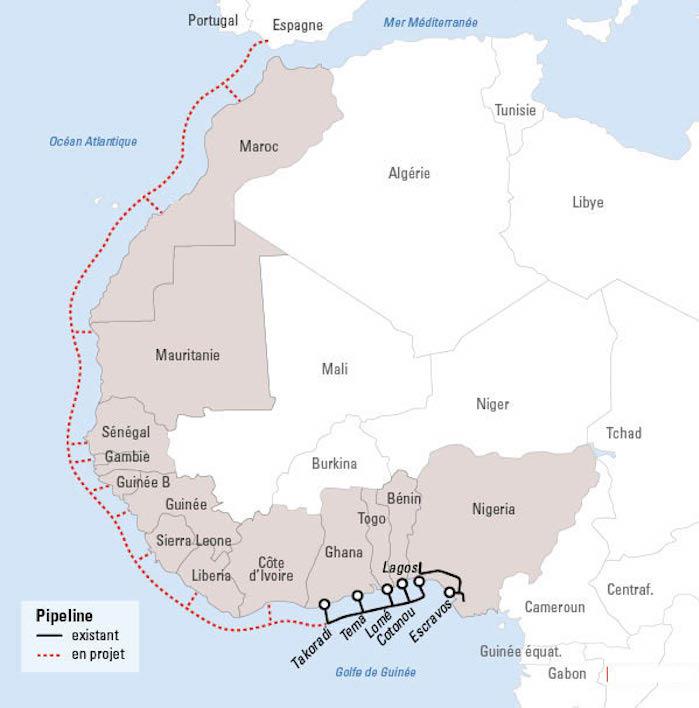NEWS
Nigeria-Morocco gas pipeline to boost Africa's "economic takeoff

King Mohammed VI of Morocco has declared that the strategic Morocco-Nigeria gas pipeline project will be a "lever for regional integration", promoting the "economic take-off" of African countries on the Atlantic coast. The project will also become a reliable source of energy supplies for European countries.
The laying of the Nigeria-Morocco Gas Pipeline (NMGP), which will run along the West African coast, will benefit African countries on the Atlantic seaboard, Morocco's King Mohammed VI said in a speech to the nation.
Morocco is "well aware of the issues and challenges facing African countries, particularly those on the Atlantic seaboard. In fact, despite the quality of its human resources and the abundance of its natural resources, Atlantic Africa suffers from a significant infrastructure and investment deficit", he pointed out.
Rabat is looking for "practical and efficient solutions" to counter this trend, he continued.
"It's within this framework that the strategic Morocco-Nigeria gas pipeline project fits in, seen as a lever for regional integration designed to bring together the conditions for a common economic take-off, to set in motion a dynamic conducive to the development of the Atlantic band", according to the monarch.
What's more, the project will also provide "a secure source of energy supply for European countries", he says.
In this context, upgrading the infrastructure of Sahelian countries and connecting them to transport and communications networks remains a key challenge, he concluded.
The Nigeria-Morocco gas pipeline project, launched in 2016, will bring Nigerian gas to 13 West African countries, to Morocco and, via Morocco, to Spain and the rest of Europe.
The pipeline will have a subsea section of 5,300 kilometers, from Bars Island in the Niger Delta to Dakhla, Morocco. The onshore section, 1,700 kilometers long, will run from Dakhla to the Maghreb European Pipeline (MEP). The total length of the pipeline will be around 7,000 kilometers, with some 13 compressor stations.
In June 2023, Nigerian group NNPCL, one of the investors, declared that the project was undergoing an environmental impact assessment, GasOutlook reported.
-

 ANALYSIS1 an ago
ANALYSIS1 an agoThe 3 African countries richest in natural resources
-

 NEWS11 month ago
NEWS11 month agoTop 10 des pays africains producteur de l’or : Mali 2-eme, Burkina Faso 3-eme
-

 FOCUS ONA1 an ago
FOCUS ONA1 an agoThe 10 largest oil refineries in Africa
-

 FOCUS ONA11 month ago
FOCUS ONA11 month agoTop 10 oil producers in Africa in 2023
-

 NEWS2 ans ago
NEWS2 ans agoRanking of oil producers: Here are the Top 10 African countries.
-

 NEWS8 month ago
NEWS8 month agoAfrica's 10 largest natural gas production fields.
-

 NEWS2 ans ago
NEWS2 ans agoTop 20 oil producing countries in 2022
-

 NEWS10 month ago
NEWS10 month agoIvory Coast: Eni to deploy a cylindrical FPSO and a converted FSO on the Baleine oil field













